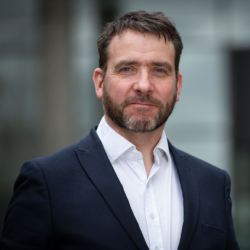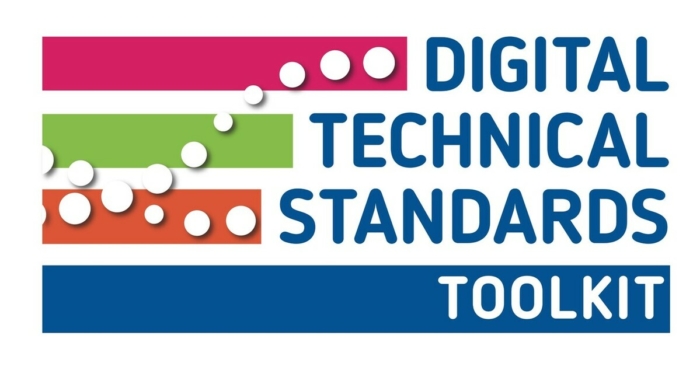 Prof Colin Turner, EPC President during the 2020-21 academic year summarises this unprecedented year and how the EPC helped its members overcome the challenges they faced during this time…
Prof Colin Turner, EPC President during the 2020-21 academic year summarises this unprecedented year and how the EPC helped its members overcome the challenges they faced during this time…
Last year our review looked at the complicated context in which Higher Education in Engineering was operating, but it’s probably safe to say this year has been the most challenging year in Higher Education in memory.
That has mostly been due to operating in an entire academic year while in the acute phase of the COVID-19 pandemic, along with constantly changing public health advice. In England, Michelle Donelan’s guidance to universities meant that for some time, engineering didn’t even make the list of subjects considered to require essential on-campus delivery. This provided an extraordinary context for a discipline so reliant on “hands on” learning and teaching.
Many engineering academics found themselves working mostly from or entirely from home, sometimes juggling work with caring commitments as schools were closed. The achievements of our members in such circumstances are substantial and should be celebrated. We should not be naïve to consider there won’t be some lasting consequences to our current students, our future students, and indeed to the community of engineering academics.
There may never be a post COVID-19 era, it is very possible the virus will continue to be with us a more severe seasonal disease to join influenza, albeit with lessening impact as time goes on. At this time, the pandemic cannot be said to be over, but we are perhaps entering the “post-acute” phase of the pandemic.
Engineering departments are working hard to undertake learning and teaching, research and development and knowledge transfer in an environment which can’t yet be said to be normal and where there may still be some setbacks ahead, but where we need to start to look forward to a new sustainable future.
As a profession we have long been grappling with the issues of equality, diversity, and inclusion, but we must consider where the impact of the pandemic will force us to redouble our efforts. It is entirely likely that a disproportionate impact on engineering academics with caring responsibilities has created even more challenges for some women in engineering. Digital poverty in some of our student constituency may have further widen gaps we have worked hard to close.
There are significant opportunities ahead too. There has never been a better time for us to rethink our delivery and assessment as many old assumptions have been swept away. New engineering education providers like NMiTE and TEDI-London have fertile ground in which to pursue new paradigms. There is space to consider flexible working arrangements that help to improve the lives and opportunities of engineering academics. Many of our members have had to de-prioritise their research in meeting the challenges of engineering education, but in a new era more comfortable with digital collaboration there are opportunities to build more geographically dispersed, but more cohesive teams.
It is to be hoped that the experiences of the last couple of years will focus minds more on the other challenges of the future, like climate change and sustainability, areas where we as engineers have a critical role to play. COP26 will be a defining event not just for this year, but for a pathway into our future. Some of the potential and real challenges from before, in the outworkings of Brexit and potential reform of financing in Higher Education remain.
In all of this, the job of the EPC is to be the “Voice of Engineering Academics”, to understand the challenges and opportunities of our members, engineering academics of all descriptions, and not just professors. We represent you in making important contributions to the national strategic and policy debates and bring you directly into those debates.
In the last two years we have held many excellent online events, with high profile speakers and policy makers, easily accessible to our members across the whole of the UK (and sometimes beyond). For instance, this year, we welcomed both Chris Skidmore MP and Chi Onwurah MP speaking at our virtual congress, on themes very dear to the EPC’s heart and work, specifically research funding and strategy, and placing diversity and ethics at the heart of engineering.
This year we saw the start of the development of our long-planned EPC Online project, a completely revitalised web presence that will help us build the Engineering Academic Network and see a step change in our capacity to build communities of our members and connect you to the information you need. EPC Online, and our future events both face to face and online, will help us connect you with each other, and with our strategic policy work, and in allowing you to speak directly to policy makers.
The year ahead then remains full of challenges, both known and unknown, but already we as engineering academics are looking for and finding new opportunities. We have a unique moment to forge new ways of working to better meet our shared goals, and to seek to build a better legacy from the difficult and turbulent last two years. While progress will undoubtedly come with further setbacks we must do what engineers do best, and build a better tomorrow.
—– Prof Colin Turner, Executive Dean of Faculty of Computing, Engineering & the Built Environment, Ulster University; EPC President 2019-2021; EPC representative for Northern Ireland.

 Prof Colin Turner, EPC President during the 2020-21 academic year summarises this unprecedented year and how the EPC helped its members overcome the challenges they faced during this time…
Prof Colin Turner, EPC President during the 2020-21 academic year summarises this unprecedented year and how the EPC helped its members overcome the challenges they faced during this time…


